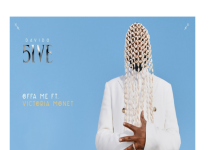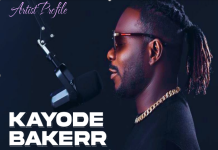Popular Nigerian actress and on-air personality Omotunde Adebowale-David, famously known as Lolo1, has sounded the alarm on the dark side of TikTok.
She has called for urgent regulation of the platform in Nigeria to protect young minds from harmful content.
Appearing on News Central TV’s “Jasiri”, Lolo1 didn’t mince words as she described the flood of disturbing trends gaining traction on TikTok—ranging from ritual-themed skits to sexually suggestive “challenges” involving minors.
In one specific instance, she recalled watching a viral clip of a young boy encouraging underage girls to expose themselves on camera as part of a “challenge”—a moment she called “deeply heartbreaking.”
“It’s not just about entertainment anymore. Some of these videos are grooming our girls and boys into dangerous behaviors,” she said. “We cannot let this slide.”
Lolo1’s outrage is far from isolated. Her call for regulation is echoing in legislative chambers as well. The Nigerian Senate recently passed the second reading of a bill that would require platforms like TikTok, Facebook, and Instagram to establish physical offices in Nigeria—a move meant to hold tech giants accountable for content shared within the country.
According to TikTok’s own transparency report, the company removed over 2 million Nigerian videos between July and September 2024 for violating community guidelines. While TikTok claims to be committed to online safety, Lolo1 insists that content moderation isn’t enough—there needs to be government oversight and enforceable policies tailored to Nigeria’s social landscape.
She also urged parents to step up, emphasizing that digital parenting is now a non-negotiable responsibility.
“This is beyond likes and follows,” she wrote in an Instagram post. “Our children are becoming experiments in the hands of strangers who go viral for all the wrong reasons.”
As conversations around digital safety and social media legislation continue, Lolo1 is fast becoming a leading voice in Nigeria’s push for a safer, more responsible online space—especially for its most vulnerable users.
Because when likes go unchecked, lives can be impacted.
































